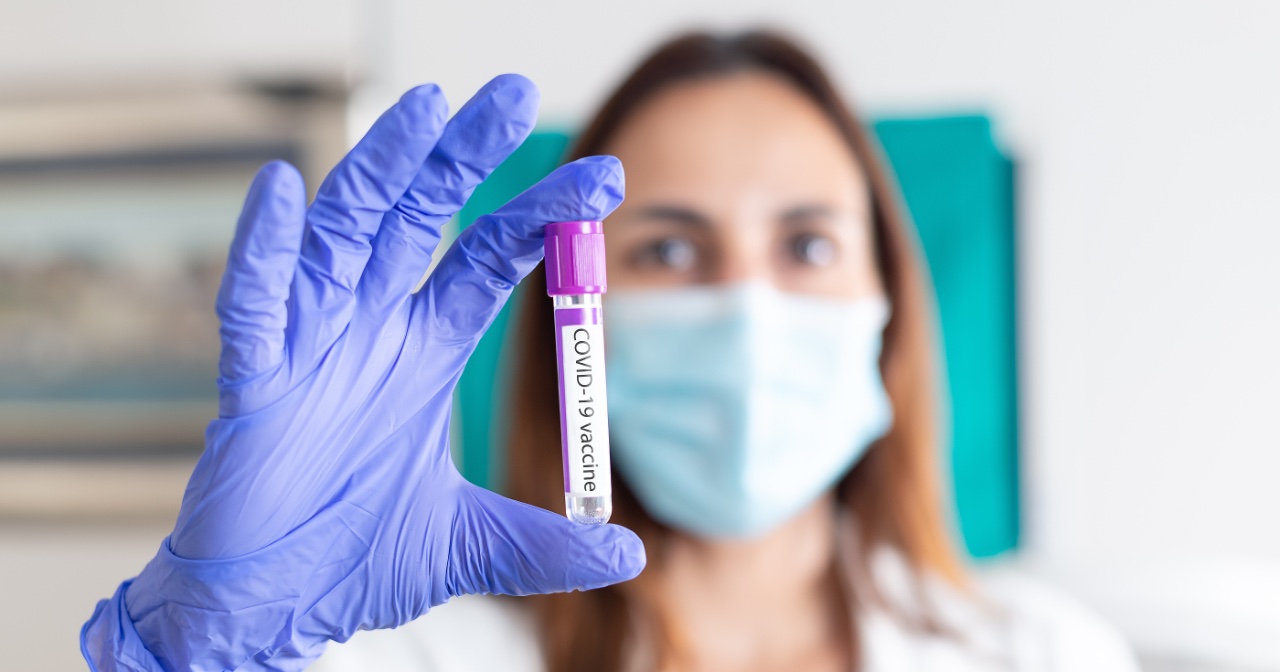Listen on: Apple Podcasts | Spotify
Somewhere between a modern-day medical miracle and the advent of genetically modified human beings lies the truth about the COVID-19 vaccine.
I survived leukemia 40 years ago, so I appreciate the life-saving therapies and procedures of modern-day medicine.
At the same time, I’m not naive enough to believe doctors know everything, drug companies are open books of honesty, or the talking head on Mainstream Media puts truth ahead of ratings or sponsorships.
It’s more important than ever for individuals to take personal responsibility for their health and invest time into understanding the pros and cons of decisions such as whether or not to get the COVID-19 vaccine.
In light of the massive hysteria surrounding COVID-19, many Americans are all but begging for a vaccine and accepting whatever their favorite talking head had to say about it.
This blog post won’t give you all the answers. I hope it dispels a few myths you might have heard and opens your eyes to some alternative points of view on the vaccine. More than anything, I hope it encourages you to look beyond Google to get answers to the questions you might still have.
Updated 5/26/21 with details about VIPIT and myocarditis.
Unmasked. Unmuzzled. Unvaccinated. Unafraid.
Make a statement without saying a word.

What is an mRNA vaccine?
Most vaccines you’re familiar with, such as the flu vaccine, contain weakened versions of a virus. When injected, your immune system attacks the virus as it would a full-strength version. Through the immune process of beating the vaccine version of the virus, you’re more prepared to beat the full-strength version if you get infected with it.
mRNA vaccines do not contain viruses. They include the mRNA of a component of the virus.
mRNA vaccines do not contain any virus particle. Instead, they contain a lab designed copy of messenger RNA found in the virus.
In the COVID-19 vaccine, the mRNA contains the instructions for building something called a spike protein.
Instead of injecting you with a weakened version of the actual virus, a healthcare provider injects you with the blueprint for building a spike protein inside your cells. Your cells contain the building blocks, so once the mRNA makes its way inside your cells, your cells do what the mRNA instructs.
You end up building the spike protein yourself, which in my opinion, is a little weird, but I’ll reserve my beliefs for the end.
Once you create the spike proteins, they appear on your cells’ surfaces. Your immune system recognizes them as antigens, foreign material. It launches an attack on the antigens, which causes you to create antibodies.
In theory, once you’ve developed the antibodies for those spike proteins, you should have a certain level of immunity from the actual virus. If you were to get infected, your immune system would attack the virus by attacking the spike proteins.
mRNA degrades quickly, so (in theory) the mRNA disappears from your cells within a couple of days. It does not remain in your cells indefinitely.
To be clear, this is unlike any other vaccine approved for use in humans. Though mRNA vaccines have been in the works since the early 1990s, animal testing failures have prevented them from being used in humans.
Read also: How are the COVID-19 Cases Counted?
Advantages of mRNA vaccines
mRNA vaccines offer a few advantages over traditional vaccines and DNA vaccines.
First, they’re supposed to be safer. Because the mRNA can be synthetically manufactured in a lab, there’s little chance of vaccine variance from one sample to the next.
Second, they’re produced faster and cheaper than traditional vaccines. With traditional vaccines, you have to “grow” them. That takes much longer. The virus grows in a specific environment, which can also trigger side effects in the vaccine recipient. Creating a specific mRNA strand can be done quickly and easily in a lab.
Third, though RNA is a component of “genetics,” the RNA does not alter your body’s DNA. At least that’s the expectation with the COVID-19 vaccine. Does that mean it’s “perfectly safe?” No. mRNA vaccines add genetic code to your cells in a way nature would not be able to do. Therefore, it’s impossible to predict all possible outcomes. However, based on what scientists know of genetics today, they believe that introducing RNA into your cells cannot cause any negative effects on your DNA.
As you come across stories about the success rates of the vaccine, remember this:
- Clinical studies usually use healthy people. Healthy test subjects don’t tell us how unhealthy subjects will respond to the vaccine.
- Study participants are at least 16 years old. That means there is no safety or efficacy data for children. Since children do not get severely ill from the virus, you’d have to question why a child would receive it anyway.
- The safety and efficacy data is based on a short timeline. We have no idea what the long-term effects of mRNA vaccines in humans could be.
- As of early December, the news proclaimed a “greater than 90% protective rate” for those who received the vaccine during the clinical trials. However, that success rate is based on only 94 people out of 44,000 getting COVID-19. A small increase in COVID-19 cases as more time goes by will crush the “90% protective rate.”
Risks of mRNA vaccines
Though medicine offers more good than harm, the history of “cutting edge” therapies is filled with practices that caused massive destruction to patients:
- Mercury as a laxative or diuretic
- Cocaine for toothaches
- Lobotomies for mental health problems
- Bloodletting for sore throats
One of the most appalling is corpse medicine:
Once upon a time, your local physician may have prescribed an elixir containing human flesh, blood or bone. So-called “corpse medicine” was a disturbingly common practice for hundreds of years.
History: 7 Unusual Ancient Medical Technique
As disturbing as that seems, the demand for adrenochrome suggests that corpse medicine still has a twisted niche market.
The COVID-19 vaccine is brand new.
The scientific data supporting its safety and efficacy is extremely short-term.
Also, the media has glorified the results from those who completed the trial. They’re not asking about why those who didn’t finish the study dropped out.
Allergic reactions
Since vaccine trials usually include only healthy people, there’s no way to know how those with medical issues may respond.
Within the first couple of days of the Pfizer COVID-19 vaccine rollout in Britain, two National Health Service (NHS) workers reported anaphylactoid reactions.
MHRA released the following statement:
Any person with a history of a significant allergic reaction to a vaccine, medicine or food (such as previous history of anaphylactoid reaction or those who have been advised to carry an adrenaline autoinjector) should not receive the Pfizer BioNtech vaccine
Medicines and Healthcare products Regulatory Agency (MHRA), United Kingdom
Autoimmune reactions
In some people, COVID-19 causes hyperactivation of the immune system. Because the vaccine triggers the immune system in much the same way as the virus itself, the vaccine might contribute to similar hyperactivity.
As a published letter to the editor, in the British Medical Journal explains:
Severe/fatal cases of COVID-19 are associated with immune hyperactivation and excessive cytokine release, leading to multiorgan failure. A broad range of mechanisms (with a final common pathway) appear to be involved. However, it has been suggested that molecular mimicry may contribute to this problem, with antibodies to SARS-CoV-2 spike glycoproteins cross-reacting with structurally similar host heptapeptide protein sequences (for example, in interleukin 7 and alveolar surfactant proteins), and raising an acute (auto)immune response against them. Autoinflammatory dysregulation in genetically susceptible individuals, and other autoimmune mechanisms such as epitope spreading and bystander activation, might also contribute to acute but also chronic autoimmunity during and after COVID-19.
Could COVID-19 mRNA vaccines cause autoimmune diseases?
With the small number of people who’ve completed trials of the vaccine, it’s difficult to be certain they won’t develop autoimmune reactions.
Bell’s Palsy
As of early December, four people in the Pfizer vaccine trial developed Bell’s Palsy, a form of temporary facial paralysis. Bell’s Palsy occurs quickly and is often mistaken for a stroke. The paralysis usually lasts a few days.
At this point, the link between the vaccine and Bell’s Palsy is unknown, so there’s no way to predict who might develop the same symptoms.
Flu-like symptoms
According to the latest data, about 10-15% of people who get the vaccine develop significant reactions such as fevers, chills, aches, pain at the injection site, etc.
Interestingly, many people who get infected with the actual virus develop no symptoms.
Myocarditis in Adolescents
As more adolescents and young adults have become vaccinated, cases of myocarditis, or inflammation of the heart, have created great concern. The majority of myocarditis cases have occured in young men.
Vaccine-Induced Prothrombotic Immune Thrombocytopenia (VIPIT)
Vaccine-Induced Prothrombotic Immune Thrombocytopenia (VIPIT) is a new condition brought on by the COVID-19 vaccine. It is a blood clotting disorder that seems to occur in young to middle-aged women most often, though older women and some men have experienced it as well.
So far, VIPIT seems to occur after getting just the Johnson & Johnson or AstraZeneca vaccines.
Sterility
Dr. Michael Yeadon, the ex-Pfizer head of respiratory research and lung specialist Dr. Wolfgang Wodarg filed an application to stop further studies on the SARS-CoV-2 vaccine on December 1, 2020.
They explained that the data is flawed because the researchers determined COVID-19 cases using PCR tests.
If you got a COVID-19 test, it was probably with a PCR. PCR tests are notoriously inaccurate. They also pointed out that the vaccine may lead to antibody-dependent amplification, an exaggerated response to the coronavirus in those already vaccinated. Prior animal research identified this problem.
Most alarming is their concern that the vaccine could cause sterility. The vaccine helps you build antibodies for the SARS-CoV-2 spike protein. However, spike proteins also contain syncytin-homologous proteins.
Those proteins are also necessary for the formation of the placenta in women and other mammals. They’re also found in sperm. Is it possible the vaccine could lead to sterility? We don’t know because the vaccines have not been studied long enough.
Long-term safety
The point is, every time we venture into new scientific or medical practices, we open the door to experience unexpected effects. To jump on the mRNA vaccine bandwagon after only a few months of vaccine research data is available means you’re taking a giant leap of faith.
Remember Olean in potato chips? The appeal of a greasy, tasty, fat-free potato chip was too good to pass up for people when they came out. It didn’t take long to realize the benefits of eating the tasty chips didn’t outweigh the micronutrient deficiencies, diarrhea, and anal leakage the olestra caused. The good thing was that these effects were only temporary.
There’s still a strong possibility that in the decades to come, we’ll realize that injecting our bodies with foreign RNA causes health problems.
There is no long-term safety data from the use of mRNA vaccines. Zero. Zilch. Any doctor who claims they’re safe is sharing an opinion based on nothing.
For older, high-risk individuals, who might die if they get infected by SARS-CoV-2, the absence of long-term safety data might be okay. On the other hand, giving the vaccine to a child, who already has almost no chance of getting severely sick if infected, is a careless gamble.
Being vaccinated does not guarantee you cannot pass the virus along to others.
To keep fear alive across America, you’ve probably heard Mainstream Media personalities tell you how asymptotic people carry and spread the virus. Though the data doesn’t support that assumption, headlines still speak of asymptomatic spreaders.
If you do get vaccinated for a virus that has almost no chance of killing you, you could still be required to wear a mask so you don’t spread the virus to someone else who hasn’t yet received the vaccination.
Weighing the benefits and risks
Those who trust Mainstream Media probably believe everyone should get the COVID-19 vaccine, just like they should all get the flu shot. I don’t see it this way.
I shared my point of view of the flu shot here. As for the COVID-19 vaccine:
- The COVID-19 vaccine trials began less than a year ago. Therefore, nobody has any idea what the long-term effects could be.
- In theory, older adults and those with pre-existing conditions would benefit the most from vaccination, as they’re the most likely to get a severe case of COVID-19 if infected. However, vaccine trial participants include healthy adults. There’s very little evidence of how older adults or those with pre-existing conditions could respond to it.
- The only logical reason to take the vaccine would be to avoid the risk of a severe case of COVID-19. Children do not have that risk. Healthy adults have minimal risk as well.
So, if healthy people and children have almost no chance of dying from COVID-19, but we don’t have any long-term data to show the vaccine is safe, it’s difficult to understand why they should take it.
As for those at high-risk, I don’t know that the vaccine has proven safe for them yet.
That leaves me far less enthusiastic about the COVID-19 vaccine than much of the world seems to be.
In my opinion, this seems like a giant experiment on people across the globe. Hopefully it won’t cause massive harm, but it might.
More concerning to me is this: We now have an approved therapy that helps our cells create proteins that are not made by human cells. Who knows what else a group of mad scientists could create with that capability?

Feel Better Fast. Guaranteed.
Energy+, EDGE, and MentaBiotics make up the Happy Juice supplement stack, with ingredients clinically proven to:
- decrease anxiousness scores by 55%
- decrease irritability scores by 60%
- decrease fatigue by 64%
- decrease anger 54%
- decrease tension by 45%
- decrease confusion by 43%
- decrease overall distress by 49%
- increase good bacteria by 70%
- decrease negative mood by 105%
- increase positive mood by 211%



